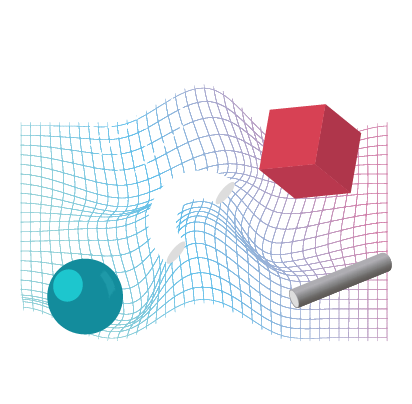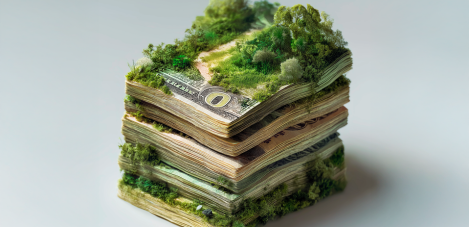-
TrendsLatin America
-
CountriesGlobal


Just when we thought that the pandemic had confirmed our world as “VUCA” (volatile, uncertain, complex, and ambiguous), we began to hear that this acronym may already be old hat. Perhaps it is no longer capable of accurately describing the recent revolution that turned the world upside-down or carrying the enormous and chaotic load of feelings around the New Normal forcing itself upon us. Now, we are in what many are beginning to call the “BANI” world.
You don’t already know what these four letters mean? They stand for Brittle, Anxious, Nonlinear, and Incomprehensible. If you are feeling left behind or out of date, welcome to the feelings inherent to the BANI world. In our case, when we first heard this expression at a conference, we wondered whether we had heard it correctly. “BANI? Did we miss something?” After all, doesn’t VUCA define this complex situation?
Many people say BANI is a heightened degree of VUCA, an “upgrade,” a reflection of a transformation that was already fast approaching, but that has been accelerated and strengthened by the pandemic. Others may say BANI is simply the more obscure and chaotic side of the VUCA world. Or even that one term is the successor of the other, as certainties and classifications have increasingly short life spans in today’s world. The fact is, this simple discussion already shows that nothing can be easily classified or labeled any longer, from any point of view. However, rather than the abbreviations, what is important is the idea behind the acronyms and how it can affect us.
To assess our current environment better, we must briefly review the VUCA concept to understand how it has been an almost perfect analogy for making sense of the times in which we live.
With changes happening instantly, events are unexpected and volatile, making it difficult to determine cause and effect. As just one example, it took radio nearly 40 years to reach an audience of 50 million people. Television took 13 years to reach the same number, but the internet needed just 4 years. Our world is increasingly ephemeral and fast-moving.
“As just one example, it took radio nearly 40 years to reach an audience of 50 million people. Television took 13 years to reach the same number, but the internet needed just 4 years. Our world is increasingly ephemeral and fast-moving”
The enormous volume of information we receive makes it more difficult to make decisions, leading to the next component of VUCA: Uncertainty. How can we anticipate events – an essential skill in today’s world – with so many transformations taking place? And there is a further complicating factor: Now, past experiences are often not applicable to today’s decision-making. In other words, we should not count on predictability.
The situation’s volatility and uncertainty heighten its complexity. The impact of any event or problem is felt much more swiftly, and it involves a variety of different aspects that must be properly analyzed. This is yet another factor that must be added to the of mix when determining the most appropriate path to take.
And finally, there is ambiguity. Different realities are mixed, with no two people reading the situation identically. Dichotomies, simple evaluations, and standardized behaviors no longer explain our world. They do not help us understand it.
All this is VUCA. The term was created a few decades ago, but it gained meaning starting in the 2000s and force with technological progress. With the challenges facing organizations, the VUCA paradigm was absorbed by executives and business schools. The term and its concepts helped companies position themselves in an increasingly uncertain environment, helping them outline more agile strategies, develop new business models, and understand their competitors and stakeholders alike. In 2008, with the global financial crisis marked by the Lehman Brothers bankruptcy, the concept took on even more relevance in the business world, helping inform decision-making in a destabilizing environment.
VUCA appeared to function as a useful compass in a world that was increasingly difficult to understand. But the pandemic and the biggest health crisis in decades have mixed everything up once more, generating new feelings that are again destabilizing for people. This is where the BANI concept comes in.

“The pandemic and the biggest health crisis in decades have mixed everything up once more, generating new feelings that are again destabilizing for people. This is where the BANI concept comes in”
Like what occurred with VUCA, this term was invented earlier that we may think. It is attributed to U.S. anthropologist, author, and futurologist Jamais Cascio, who presented it at an Institute for the Future (IFTF) event in Palo Alto, California, in 2018. The insight came to him two years before the pandemic but has gained increased relevance because of it.
Cascio had given lectures and TED Talks on the environment, an issue that aware companies increasingly focus on. In 2009, he published the book “Hacking the Earth, Understanding the Consequences of Geoengineering.” That same year, he Foreign Policy magazine named him one of the Top 100 Global Thinkers.
The first article he wrote on the BANI world, “Facing the Age of the Chaos,” was published in April 2020 on his Medium profile. Cascio sums up the transformation that changed the history of humanity and shows that we must go beyond the VUCA concept to understand it.
“Situations in which conditions aren’t simply unstable, they’re chaotic. In which outcomes aren’t simply hard to foresee, they’re completely unpredictable. Or, to use the particular language of these frameworks, situations where what happens isn’t simply ambiguous, it’s incomprehensible.”

These provocative statements from Cascio give us a basis to better reflect on these characteristics of the “BANI New Normal:”
Brittle. This arises from efforts to maximize efficiency, to wring every last bit of value – money, power, food, work – from a system. Living in an interconnected world means that fragilities which were once restricted to specific places and groups can now cause ripples effect around the world. This condition of fragility can impact the security of enterprises, which run the risk of bankruptcy, and transform the way the market behaves.
Anxious: There are now so many uncertainties (thanks to our VUCA world) that they generate immense anxiety and a constant feeling of impotence. Everyone has started to feel at least a little of the “21st Century disease,” which involves fear over what could happen or go wrong regardless of what we do. An anxious world is one in which we are always hitting refresh to update the news and see what horror shows up next. This is the characteristic anxiety we also find represented by (another!) acronym: FOMO, referring to “fear of missing out.” In other words, it is the fear of being left out of whatever is happening or of losing something. One example is the constant need many feel to be up-to-date on social media in real time, all day long. Anxiety reflects the anguish and stress of our present times, accentuated by insecurities in relation to health and the risk of contracting COVID-19.
Nonlinear. What was complex became, in turn, nonlinear, without a single meaning, leading to multiple destinations. The systems of cause and effect have become disconnected or disproportional. This leads us directly to the pandemic. It is impossible to have predicted how the emergence of a virus in one part in Asia could cause all the (unfortunately tragic) events we have seen all over the world. The concept of “flattening the curve” of COVID-19 cases is inherently a war against nonlinearity.
Incomprehensible. Attempts to find all the answers no longer make so much sense. An obsessive analysis of the data could overwhelm any person’s ability to understand it, as well as make it hard to distinguish “signal” from “noise.” At this point, the BANI concept enters the realm of resignation. According to BANI, since it is often difficult to try to translate or understand the situation, considering it undecipherable may be what is needed in order to take a step forward and try to find one’s own path.
In a simplistic analysis of BANI, it may appear that there is no way out for the world. However, history has taught us how to look ahead. Imagine the feeling of total instability when emerging from a dichotomous culture and absorbing the demands of the VUCA world. From the historical perspective, it has been only a short time. In just a few years, many startups became market giants, particularly in technology. In the pandemic, what were once mainly offline sectors (health and education, for example) went online in a matter of mere months.
“The BANI concept enters the realm of resignation. According to BANI, since it is often difficult to try to translate or understand the situation, considering it undecipherable may be what is needed in order to take a step forward and try to find one’s own path”
Challenges for renewal
It is difficult to predict whether the world will progress in a way defined by BANI or whether the acronym will fall out of favor or lose its meaning as different scenarios evolve or recede, depending on our points of view. It is too early to make predictions. However, regardless of this discussion, it is essential to reflect on the opportunities and lessons we can extract from the new signs appearing in our New Normal.
Amid the diagnosis of so many negative and challenging feelings (such as anxiety, fragility, and impotence), some alternative paths have been discovered, particularly by the leaders of society’s different sectors.Among the “antidotes” are empathy and concern for the whole, for us all. In other words, an awareness that many of the anxieties and concerns of the BANI world are not purely individual. The new vision of corporate purpose in companies, one geared toward all their stakeholders, is now present in initiatives such as the Business Roundtable (launched by CEOs of large U.S. companies in 2019), and it is a response to this BANI world.
In 2021, Davos Forum Founder and Executive President Klaus Schwab stressed that a “Great Reset” of capitalism was necessary. “We need to move from a world that is based simply on material goals to one that is much more aware of people’s wellbeing,” he said.
This exercise in transformation must be led by genuine, aware leaders. According to Luiza Trajano, one of the key figures in the Brazilian business world and the area of sustainable development, “Companies are geared toward what the CEO wants. If they don’t buy into an idea, there’s no point in wanting someone else to buy into what the CEO didn’t accept themself.”
Time will tell us whether the BANI concept will be short-lived or not. But we can already see that an increasing number of radical changes are underway. In a recent article on the new acronym, Brazilian philosopher and historian Leandro Karnal questioned the need for labels to define the world. “Do cascading concepts change anything?” he asked.
Regardless of classifications, we have the “challenge of dealing with challenges.” In this respect, we need resilience to address this new BANI world, which does appear to be more fragile. In the case of anxiety, we will probably be able to move forward by exercising greater empathy. The lack of linearity could be offset by more flexibility and anticipation. And there is nothing better than transparency and sincerity to deal with incomprehension. All paths are open for these opportunities, and there are no ready-made answers. One conclusion is clear: Our present could not be better for change.
Authors
Adélia Chagas



